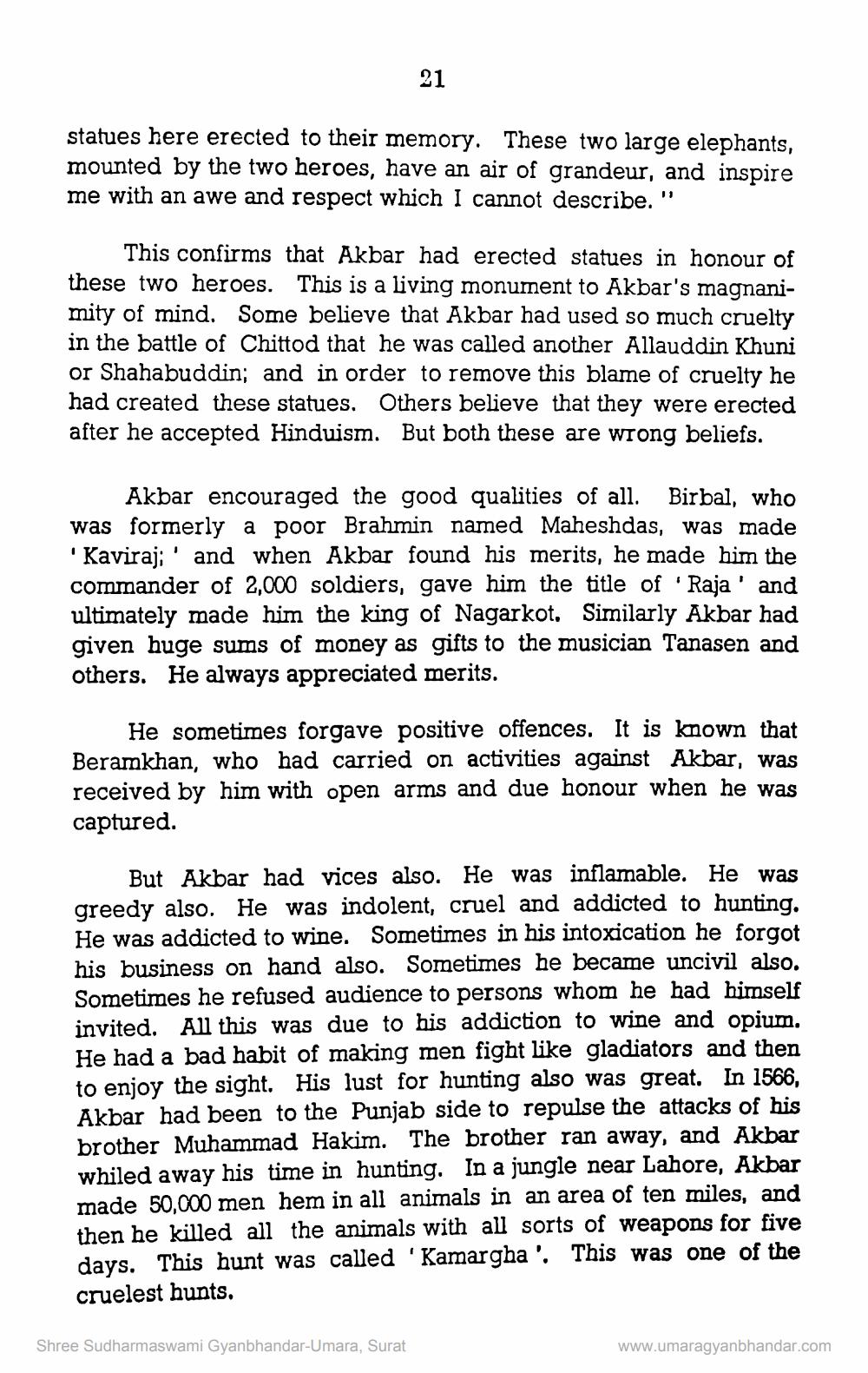________________
21
statues here erected to their memory. These two large elephants, mounted by the two heroes, have an air of grandeur, and inspire me with an awe and respect which I cannot describe."
This confirms that Akbar had erected statues in honour of these two heroes. This is a living monument to Akbar's magnanimity of mind. Some believe that Akbar had used so much cruelty in the battle of Chittod that he was called another Allauddin Khuni or Shahabuddin; and in order to remove this blame of cruelty he had created these statues. Others believe that they were erected after he accepted Hinduism. But both these are wrong beliefs.
Akbar encouraged the good qualities of all. Birbal, who was formerly a poor Brahmin named Maheshdas, was made 'Kaviraj;' and when Akbar found his merits, he made him the commander of 2,000 soldiers, gave him the title of 'Raja' and ultimately made him the king of Nagarkot. Similarly Akbar had given huge sums of money as gifts to the musician Tanasen and others. He always appreciated merits.
He sometimes forgave positive offences. It is known that Beramkhan, who had carried on activities against Akbar, was received by him with open arms and due honour when he was captured.
But Akbar had vices also. He was inflamable. He was greedy also. He was indolent, cruel and addicted to hunting. He was addicted to wine. Sometimes in his intoxication he forgot his business on hand also. Sometimes he became uncivil also. Sometimes he refused audience to persons whom he had himself invited. All this was due to his addiction to wine and opium. He had a bad habit of making men fight like gladiators and then to enjoy the sight. His lust for hunting also was great. In 1566, Akbar had been to the Punjab side to repulse the attacks of his brother Muhammad Hakim. The brother ran away, and Akbar whiled away his time in hunting. In a jungle near Lahore, Akbar made 50,000 men hem in all animals in an area of ten miles, and then he killed all the animals with all sorts of weapons for five days. This hunt was called 'Kamargha'. This was one of the cruelest hunts.
Shree Sudharmaswami Gyanbhandar-Umara, Surat
www.umaragyanbhandar.com




